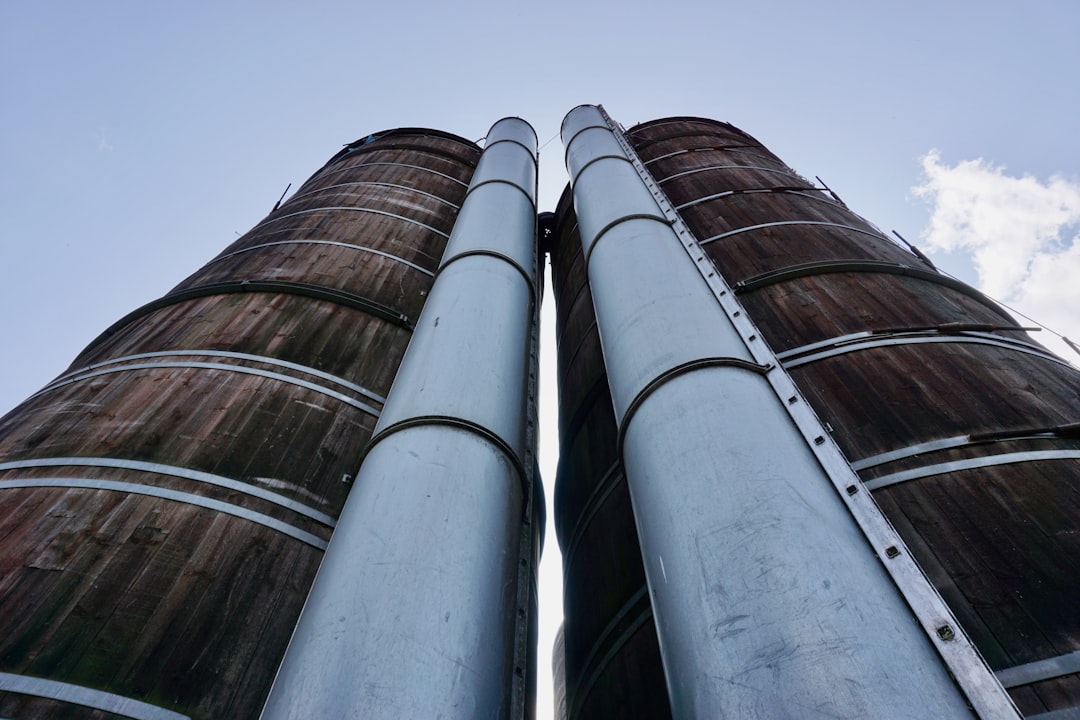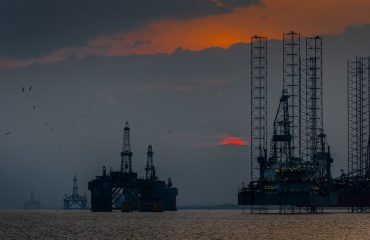Oil refineries are complex and hazardous environments, demanding robust and reliable infrastructure to handle the high pressures, extreme temperatures, and corrosive nature of the processed materials. At the heart of this infrastructure lies a network of steel pipes, silently but critically facilitating the entire refining process. This post delves into the essential role of steel pipes in oil refineries, exploring their diverse applications, material specifications, safety implications, and future trends.
Diverse Applications of Steel Pipes in Refineries
Steel pipes serve a multitude of purposes within an oil refinery, forming the backbone of its intricate piping systems. These applications can be broadly categorized, each demanding specific pipe properties and construction:
- Crude Oil Transfer: Large-diameter steel pipes transport crude oil from storage tanks to the processing units, often under high pressure. These pipes require exceptional strength and resistance to corrosion from the crude oil’s inherent components.
- Process Piping: A vast network of smaller-diameter steel pipes carries intermediate products between different processing units (distillation columns, cracking units, etc.). These pipes must withstand fluctuating temperatures and pressures, as well as the corrosive effects of various chemicals.
- Product Transfer: After refining, the finished petroleum products (gasoline, diesel, kerosene, etc.) are transported using steel pipes to storage tanks or loading facilities. The specific requirements here depend on the product’s properties, with some demanding higher resistance to specific chemical degradation.
- Steam and Water Distribution: Steam and water are essential utilities within a refinery, used for heating, cooling, and cleaning. Dedicated steel pipe networks deliver these fluids to various locations, often at high temperatures and pressures. Corrosion resistance and thermal stability are crucial considerations.
- Instrument and Control Piping: Smaller-diameter pipes carry instrument air, process control signals, and other essential fluids for monitoring and regulating the refinery’s operations. Accuracy and reliability are paramount in this application.
Stringent Material Requirements for Refinery Steel Pipes
The harsh operating conditions within refineries necessitate the use of steel pipes that meet stringent material specifications. The selection process considers several critical factors:
- Grade of Steel: High-strength low-alloy (HSLA) steels, carbon steels, and stainless steels are commonly used, each offering varying levels of strength, corrosion resistance, and weldability. The choice depends on the specific application and the nature of the processed fluids.
- Corrosion Resistance: Many refinery processes involve corrosive chemicals, necessitating the use of corrosion-resistant alloys or protective coatings. Internal and external corrosion protection is often critical, achieved through materials selection, specialized coatings, or cathodic protection systems.
- Weldability: The construction of refinery piping systems often involves extensive welding. Therefore, the selected steel must exhibit excellent weldability to ensure the integrity of the joints. Careful weld inspection is crucial to maintain safety and reliability.
- Temperature Resistance: Some refinery processes operate at extremely high temperatures, requiring steel pipes with superior creep resistance and thermal stability. The selection of suitable steel grades is crucial to prevent pipe failure due to thermal stress.
- Pressure Rating: Refinery piping systems operate under various pressure levels, demanding steel pipes with adequate wall thickness and pressure ratings to prevent leaks or ruptures. Accurate pressure calculations and compliance with relevant standards are essential.
Safety Considerations in Refinery Steel Pipe Installations
Safety is paramount in oil refinery operations. Steel pipe installations must adhere to strict safety protocols to minimize the risk of leaks, fires, or explosions. Key safety considerations include:
- Regular Inspection and Maintenance: Periodic inspections using non-destructive testing (NDT) methods, such as ultrasonic testing and radiographic testing, are crucial to detect potential defects or corrosion before they lead to failures.
- Proper Welding Techniques: Qualified welders must perform all welding operations according to strict procedures to ensure the integrity of the pipe joints. Regular welder qualification checks are necessary.
- Pressure Testing: Before commissioning, new piping systems undergo rigorous pressure testing to verify their ability to withstand the intended operating pressures without leaks or failures.
- Emergency Shutdown Systems: Integrated safety systems, including emergency shutdown valves and pressure relief devices, are critical to mitigate the consequences of potential pipe failures or leaks.
- Compliance with Regulations: Refinery piping systems must comply with stringent industry standards and regulatory requirements to ensure safety and environmental protection.
Advancements in Steel Pipe Technology for Refineries
The oil and gas industry is constantly striving for improved efficiency and safety. Several advancements in steel pipe technology are enhancing the performance and reliability of refinery piping systems:
- Advanced Materials: The development of new high-strength, corrosion-resistant alloys is expanding the options for refinery piping applications, allowing for lighter-weight, longer-lasting pipes.
- Improved Coatings and Linings: Advanced coatings and linings provide enhanced corrosion protection and reduce the risk of internal fouling, improving the efficiency and lifespan of the pipes.
- Smart Pipes and Monitoring Systems: The integration of sensors and monitoring systems into steel pipes allows for real-time monitoring of pressure, temperature, and other critical parameters, enabling proactive maintenance and reducing the risk of failures.
- Advanced Welding Techniques: Innovations in welding technologies, such as robotic welding and automated inspection systems, are improving the quality and consistency of pipe welds, enhancing safety and reliability.
- Modular Construction Techniques: Prefabricated pipe sections and modular construction methods are accelerating the installation process, reducing downtime and improving overall efficiency.
The Future of Steel Pipes in Oil Refineries
As the energy landscape evolves, the demand for efficient and sustainable refinery operations will continue to grow. Steel pipes will remain a critical component of refinery infrastructure, with ongoing advancements driving further improvements in safety, reliability, and efficiency. Research and development efforts will focus on developing even more robust and corrosion-resistant materials, integrating advanced monitoring systems, and implementing more sustainable construction practices. The focus will remain on minimizing environmental impact and enhancing the overall safety of refinery operations.
Tags: Steel pipes, oil refinery, piping systems, refinery safety, corrosion resistance, HSLA steel, stainless steel, pressure vessels, process piping




